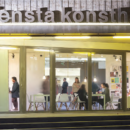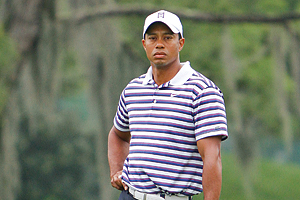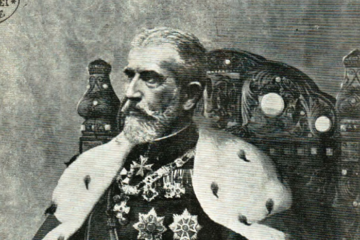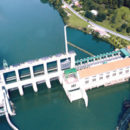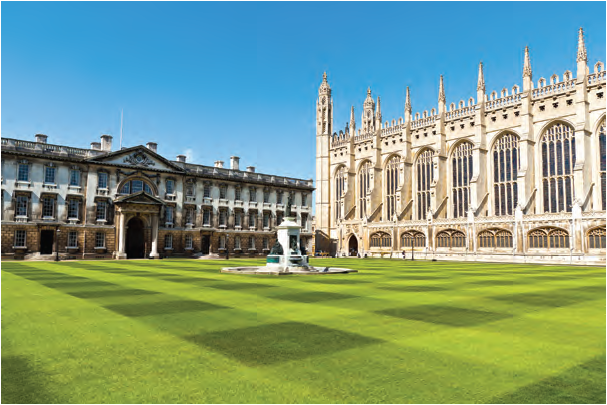
Private High Schools – the Best Education Money Can Buy
Many schools are good at offering reasonable instruction, but few are capable of providing all-round education, thus the interest for sending children to private high schools abroad (mainly in Great Britain and Switzerland) has been growing in Romania. Preparing children for the challenging world they will leave in tomorrow is the best investment (of up to 43,000 GBP or 93,000 CHF per year) that more and more Romanian parents are willing to make.
Either good or not-so-good, our experiences in school shaped our destiny. None of us ever remained unmarked by our first life lesson in school. Nor did John Lennon who once recalled: “When I was five years old, my mother always told me that happiness was the key to life. When I went to school, they asked me what I wanted to be when I grew up. I wrote down ‘happy’. They told me that I didn’t understand the assignment, and I told them they didn’t understand life.”
Indeed, in our uber-competitive world, most schools want to pride themselves with high-performance’ students, but focus less on how happy their children are. Unfortunately, so do many demanding parents whose aspirations smother their children’s personalities. Yet, wise parents are becoming increasingly aware that there’s a higher likelihood for a ‘happy’ child to turn into a successful adult than for a pupil overburdened with dull, monotonous and exhausting school chores.
Schools are allegedly meant to shape children’s personalities, but what many of them do these days is just passing on loads of (often perishable) information to pupils. Children learn things that may not be useful a decade later, while they lag behind in terms of acquiring a clear set of moral values and the necessary skills for adapting to an ever changing and relativistic world.
A charming school life
There are many good schools, even in Romania, but more and more well-to-do Romanian parents realize that these institutions ‘lack’ something. They try to fit children into their inflexible patterns, instead of opening up towards embracing students’ diversity and empowering them. In the meantime, the best private schools have a different approach.
“A good high school in the UK helps you in a number of areas. Students are provided with facilities for any sport they want to practice, from horse riding to canoeing, tennis, hockey, swimming etc, for drama, art workshops, a concert hall, and optional courses on debating, poetry, politics, almost anything… And if there’s something you want to do, but that activity hasn’t yet been done in that school, they will nevertheless help you do it”, says M.I., whose daughters attend King’s School Canterbury, UK.
Long before going to a university, at the age of 14-15, “children are given the possibility to choose their own subjects. This raises their self esteem and makes them take responsibility for their future”, considers D.T. Her daughter graduated from Cardiff Sixth Form College in Cardiff, Wales, with A-Level qualifications. With fewer subjects, students have more study hours for each of their preferred fields of interest. “The children’s opinion is respected and they are encouraged to ask many questions, to think from various perspectives, out of the box”, adds D.T.
Unlike their public counterparts, in private high schools the average teacher-student ratio is 1:7 and they can afford to organize classes of 2 to 7-8 (and a maximum of 15) children.”The small number of students in a group allows them to be active participants in the teaching-learning process and prevents them from being just viewers. Logical learning, critical thinking, argumentation, interdisciplinary and practical knowledge the children gain, prepares them for life,” explains Teodora Răducanu, Secondary Education Department Coordinator at Integral Programe Educaționale (IntegralEdu) educational consultancy.
Instead of feeling ‘imprisoned’ in their schools, students discover what they like, what they are good at. Therefore, learning is no effort, but a delight for most of them. Every student is free to experience, but having a personal tutor will help them find out what their talents are. Tutors are qualified at offering careful career guidance even before children even realize what they would like to do.
Apart from a climate that encourages academic performance, students have the opportunity to live among peers of many nationalities, which helps them learn to respect diversity. Taking part in sport competitions, in charity actions and various activities of their own making (not imposed by the school curriculum), students learn what being independent and taking responsibility means. They grow confident and are prepared for becoming the best university students anywhere in the world.
Coming from a rigid educational system like the Romanian one, students end up feeling like ‘Alice in Wonderland’ in a private school in Great Britain and Switzerland, which are – according both to IntegralEdu and Mirunette International Education – the top two most favoured destinations by Romanian high school students. Other countries of interest for Romanians are Germany, Canada, Austria, Portugal and the USA.
Taking a tough decision
M.I. had been inspired by friends to search for a British high school for her daughters and King’s School Canterbury was ultimately chosen after visiting six educational institutions in the UK. In D.T.’s case, her and her teenager daughter’s decision to attend the two last years of high school at Cardiff Sixth Form College was considered “a very daring step to take, but one that is now being considered by the children of family friends as well.”
“I say daring because, generally, it is part of our education in Romania to raise our children very close to the family and we are reluctant to letting them go, believing that they are not mature enough or ready for this step. I noticed that Westerners don’t think like this. On the contrary, they encourage children to break free from the family cradle,” says D.T. Anyway, she is convinced that the final decision must belong to the child, irrespective of parental preferences.
It wouldn’t be enough to have the necessary money, if the future pupils weren’t part of the best, because “although tuition fees are high, elite high schools are very selective. In order for a student to be accepted in a school year, the application must be filed even two or three years before”, warns Daniela Pavoni, General Manager of Mirunette International Education. Apart from excellent school reports for the previous three years, the child is required to pass English, mathematics and science entrance exams and an interview.
As for the emotional implications of being separated from their teenage offspring, parents don’t usually have such a hard time as they thought they would. “Parents often say that they know more about what their child does at school, now that the child is abroad, than they did when the child was in Romania,” Teodora Răducanu confesses. This happens because all high school have web portals where parents receive constant updates about the personal and academic progress of their child. In European schools, students can come home on short holidays every 5-6 weeks.
Despite the frequent news reports about binge drinking, promiscuity, drug consumption and acts of violence among British teenagers, these privileged high schools have nothing to do with the outside world. They guarantee the safety of children. Zero tolerance policies for alcohol and drugs are in place; as well as for absences. Strict uniform and dress code rules are severely enforced (sometimes by especially employed personnel), and night curfews start at 22:00.
Romanian students overwhelmingly prefer mixed schools, but their parents should rest assured that disrespectful attitudes towards girls are not tolerated, and sexual relations between colleagues are strongly discouraged. Respect, politeness, a sense of duty and responsibility are cultivated. “Actually, a system of universally accepted values is ‘recreated’ in these private schools, one that in the case of Romania has been lately neglected”, noticed D.T.
An investment worth making
“The education of a child needs a strategy to ensure his/her success, just as each successful business needs to have a strategy based on research, analysis and the right decisions,” Răducanu believes. The most visible benefit of attending a private high school is the fact that it increases the chances of admission to one of the world’s top universities. All private high schools “quantify the value they create by the number of students accepted by prestigious universities”, Pavoni says.
Nevertheless, there are also benefits harder to quantify. Irrespective of the university chosen, having studied in a private high school, among colleagues of up to 25-30 nationalities, paves the way for a successful international career. Any form of material wealth can be wasted and fortunes can vanish as if they never existed. What people always remain with, in any circumstances, are their richness of knowledge, strength of character, variety of aptitudes and healthy attitudes. Students develop personality traits that will help them act independently in multicultural environments and challenging circumstances. In most cases, they earn an invaluable network of international friends.
In order to see their offspring achieving these results, parents have to be fully aware of the costs involved. Annual tuition fees (with or without lodging, meals, books and stationery, pocket money and travel expenses) range from 24,000 GBP to 43,000 GBP in the UK, 64,000 to 93,000 CHF in Switzerland, and 33,000 to 37,000 EUR in Germany. Portugal has cheaper schools (some 30,000 EUR), while the fees in the USA vary between 42,000 and 72,000 USD.
It may seem much, but the cost of attending a public high school in the UK (which is free, no tuition fee required) can reach 12-14,000 GBP per year just for accommodation, meals and extracurricular activities. And the difference in quality of education is without comparison.
According to both educational consultancies quoted above, parents opting for a private high school abroad are pretty affluent, either owning their companies, being involved in international businesses or working in middle to top management positions in multinational companies. Some of them can save money – children with excellent results are entitled to scholarships consisting in reductions of 10 to 75% of the annual tuition fees or the total cost (including living expenses).
Whether the investment is worth being made remains an intimate family matter but Benjamin Franklin’s words are as true today as some 200 years ago: “An investment in knowledge pays the best interest.”
FOREIGN PRIVATE HIGH SCHOOLS MOST FAVOURED BY ROMANIANS
(boarding schools have a closed campus, whilst colleges have an open campus)
* British boarding schools: Bromsgrove School, Caterham School, Oakham School, Hurtwood House, Kingswood School Bath, Liverpool College, Chigwell School.
* British colleges: Cardiff Sixth Form College, Abbey DLD Group of Colleges, d’Overbroeck’s College, St. Clare’s Oxford, Mander Portman Woodward, Astrum Education Group, CATS College, Wellington College.
* Swiss boarding schools: Lyceum Alpinum Zuos, Aiglon College, Institut auf dem Rosenberg, Leysin American School.
* German boarding schools: Schule Schloss Salem, Berlin Brandenburg International School.


